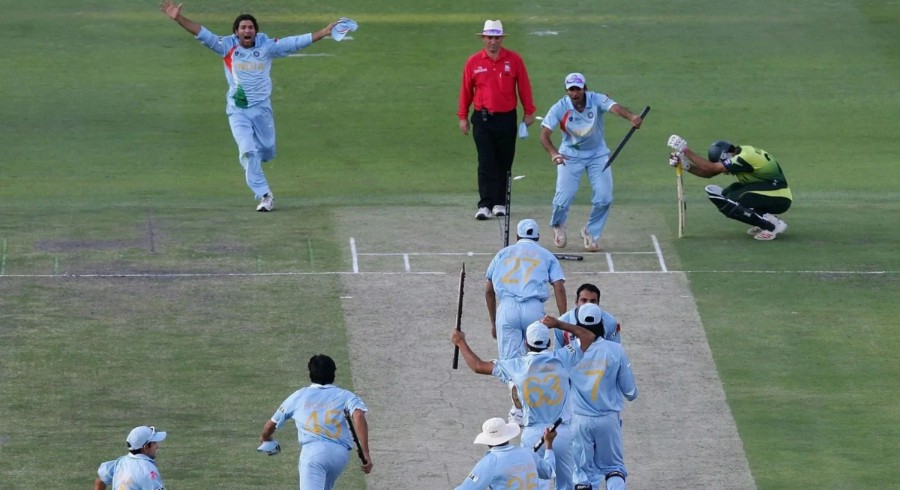Misbah emphasized that the team thought the target was manageable
 PHOTO: AFP
PHOTO: AFP
In a candid reflection on Pakistan's heartbreaking defeat to India in the 2007 T20 World Cup final, former captain Misbah-ul-Haq attributed the loss to overconfidence.
Speaking about the match, Misbah recalled the team's belief in their ability to chase down the target set by India, given the pitch conditions and the relatively short boundaries at the Wanderers Stadium.
"We were very confident because of the kind of pitch there was and the kind of (short) boundaries, it was very tough for India because they were dependent on their spin bowling. "At the Wanderers, it's very difficult for the spinners usually and their main bowler at that time was Harbhajan Singh. For an offspinner to bowl with short side boundaries there (was tough), and usually we play spin well," Misbah said.
Misbah emphasized that the team thought the target was manageable.
"We thought ke ye to koi mushkil runs nahi hain (not a difficult target to chase), just need a good start. But I think losing quick wickets in 2-3 overs, the run-out of Imran Nazir, that basically put pressure on us. At one point we were 77 for 6. So because of the fall of wickets, the target became difficult. Mujhe lagta hai overconfident ho ke hi kaam kharab hua (I think things went bad because of overconfidence)," he further added.
Reflecting on the crucial moments of the match, he stated, "I was very confident that we need 13 runs and I have to middle only two balls. The four to third-man boundary off an edge from (Mohammad) Asif's bat gave us a feeling that maybe luck is on our side. Then I hit a six at the start of the last over."
"It is like that, cricket is like that. When you have just one wicket left, then the bowling side is ahead in the game because you have to make just one mistake, out, and game over," he concluded.